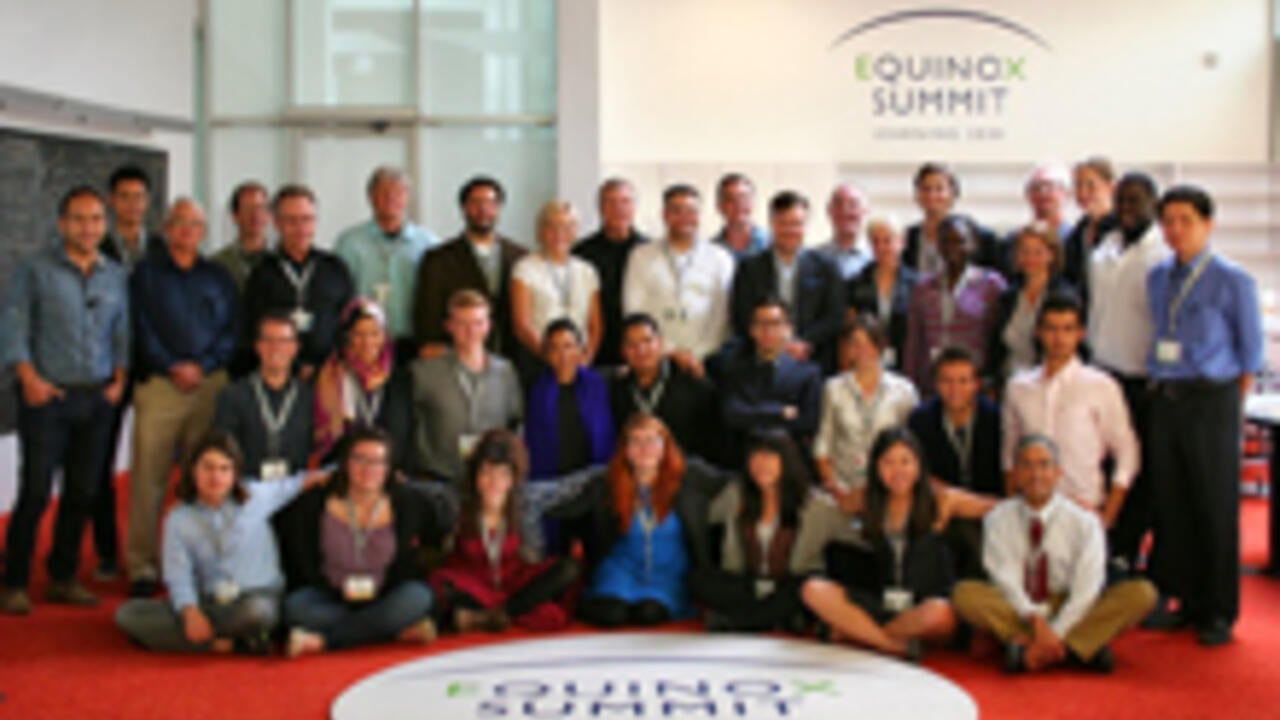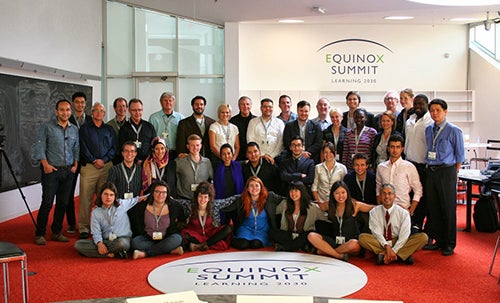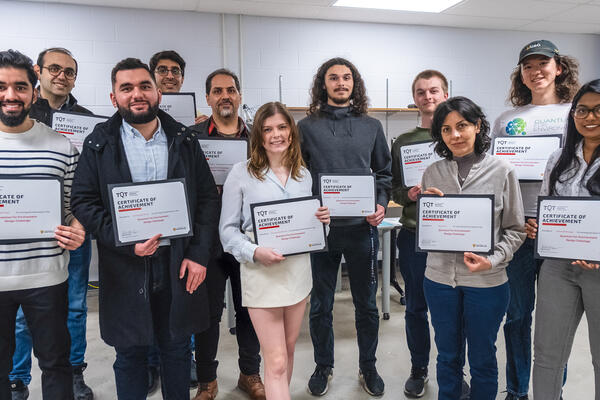
Equinox Blueprint: What high school should look like in 2030
High school students learn better when they take risks and their teachers are empowered to experiment with their education, report states

High school students learn better when they take risks and their teachers are empowered to experiment with their education, report states
By Staff Marketing and Strategic CommunicationsForget facts and figures — high school students need to develop lifelong learning practices and a sense of self, according to a report released by the Waterloo Global Science Initiative (WGSI).
The Equinox Blueprint: Learning 2030 is the result of a conference hosted by WGSI, a partnership between the University of Waterloo and the Perimeter Institute. The conference brought educators from around the world together in 2013 to plan for the next generation of learners.

“We need the kind of change that can work anywhere for anyone, regardless of their resources,” said Dr. Michael Brooks, curator of Equinox Summit: Learning 2030. “We can impact the well-being of a generation with changes that are well-defined, affordable, and implementable. But we need to begin this work now.”
The Blueprint focuses on seven goals:
The heart of the Blueprint is a student-centred vision, encoded in a Charter of Learner’s Rights. This is no surprise considering that half of Blueprint contributors are aged 18 to 30. They include American education activist Nikhil Goyal, Thiel Fellows Chris Olah and Noor Siddiqui, and Sam Levin, founder of the Independent Project.
A school run by students
“Four years ago, as high school student, I designed an alternative school — the Independent Project. It is run by students, and operates as a school-within-a-school,” Levin says. “I saw kids about to drop out not only finish high school, but become passionate about their education. I have seen first-hand the type of engagement that is possible in the learning environment proposed in the Learning 2030 Blueprint.”
Susan Opok, Managing Director of the Ugandan operations of the WISE-Award winning Promoting Equality in African Schools (PEAS) and Blueprint contributor says 90 per cent of children in Uganda are enrolled in elementary school. “We must turn our focus to secondary education or we will lose the gains we’ve made and undermine our efforts to eliminate poverty,” she says.
University of Waterloo students design interactive website
To support action and engagement, students from the University of Waterloo’s Master of Digital Experience Innovation program designed an interactive website.
Education communities around the world are invited to share their stories and plans for change, discuss common issues, and support one another in the ongoing process of transforming high school education.

Read more
12 Waterloo students and postdoctoral fellows receive up to $10,000 in funding to develop their green-tech solutions

Read more
Collaboration with diverse health-care leaders ensures a curriculum tailored to address the sector's most pressing challenges

Read more
Transformative AI innovations, data and ethics are the focus across digital health academia, clinical practice and industry
The University of Waterloo acknowledges that much of our work takes place on the traditional territory of the Neutral, Anishinaabeg and Haudenosaunee peoples. Our main campus is situated on the Haldimand Tract, the land granted to the Six Nations that includes six miles on each side of the Grand River. Our active work toward reconciliation takes place across our campuses through research, learning, teaching, and community building, and is co-ordinated within the Office of Indigenous Relations.